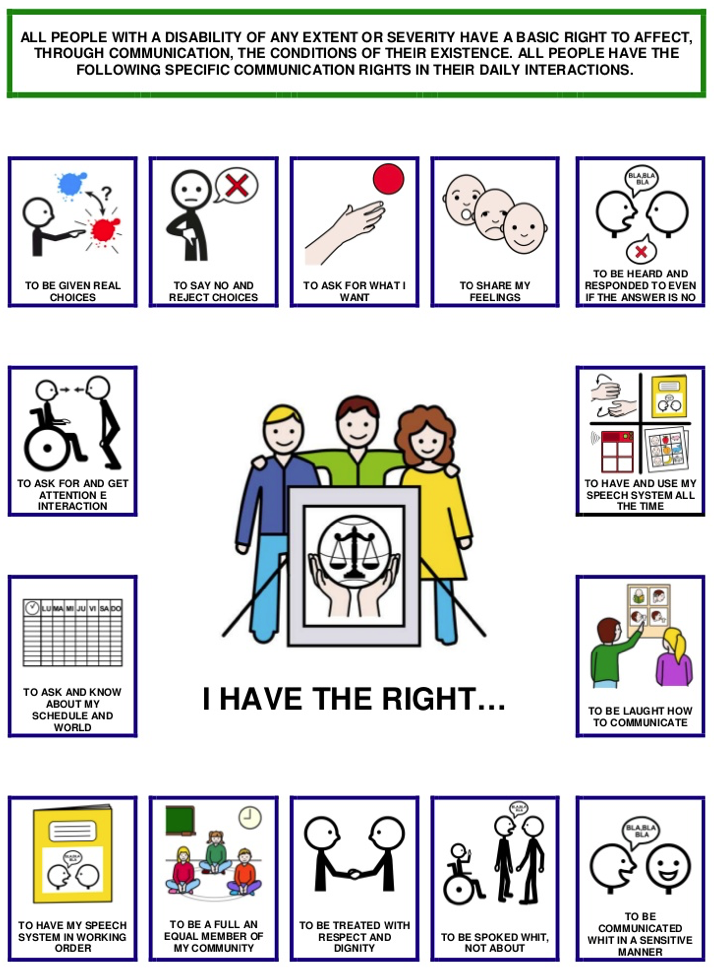Communication
9. Improving communication with your own child
9.3. Communicating with people with intellectual disability
ACTIVITY |
| |
| Should I do the activity alone? | Try to complete the activity with your partner. |
| After completing the activity… | I should be able to:
|
| Before I start, what will I need to do this activity? | Sheets of papers and pencils. |
What do I have to do? How we write about and speak with people with disability can have a profound effect on the individual and on community attitudes. By their very nature, some words and interactions can degrade and diminish people with disability. Others perpetuate inaccurate stereotypes, entirely removing a person’s individuality and, in some cases, their dignity. Through positive and appropriate interactions with people with disability, we can help break down the barriers that they face in the community and in the physical environment. It is important to recognise people with disability for what they can do, rather than focusing on their limitations. When communicating with a person with disability, rely on your common sense, and interact with people the way you would want to be treated. The fundamental principle is to put the person before the disability.
Communication tools Speak directly to the person with disability. Provide the person with a disability with all relevant information so they can make informed decisions. Ensure the person with a disability is involved in all stages of the decision-making process. Ask a person if and what assistance may be needed. Do not assume you know what assistance is required. Treat people with disability with the same respect and courtesy you would expect. People with disability are not invisible, do understand what is being said to them, and can speak for themselves. Do not attempt to speak, or finish a sentence, for the person you are speaking to.
Communicating with people with intellectual disability - background reading In this template we want to provide you with some tools that help you to better understand your child with intellectual disability, thus allowing better communication and interaction between the two. Mental health issues, at various times, can cause changes to a person’s thinking, perception, feeling and emotional state. These changes can lead to behaviours that are out of context and do not match the situation as you would expect. People living with mental health issues usually manage these symptoms with medication and support. Social interaction can often be difficult for a person experiencing an episode of mental illness. Be non-judgmental and allow time for interaction and decision making. If you are interacting with your child and you notice that he/she • Is disoriented and responding to events and perceptions that you do not share, this indicates that he/she may have lost touch with reality; • Is becoming highly anxious and frightened to the extent that the belief of threat is governing their behaviour, this indicates paranoia; • Is displaying unusual or inappropriate behaviour or emotion. • Be calm. • Read their body language to assess the situation. Non-verbal communication can be very helpful in times of confusion. Allow your child to have enough space and initially avoid both direct eye contact and touching. • Show understanding and compassion. Empathise with their feelings without necessarily agreeing with what is being said eg.: “I understand that you are feeling frightened by your experiences...” • Ask how you can help. Your child may ask you to sit with him/her, he/she may be carrying a contact number that you could ring, or they may want to be left alone. Respect the person’s situation and do not pressure your assistance onto them. • Don’t take things personally. Remember that your child may not have insight into his/her behaviour and its impact on other people. (source; Communicating with people with disabilities by the Byron Shire Council) | ||
| What to do next? | We will help each other if we share some key ideas to the forum. Any insight you learned from? Was it helpful? Are you feeling especially happy or worried about something related? Will you apply it in your daily routine? …? |
